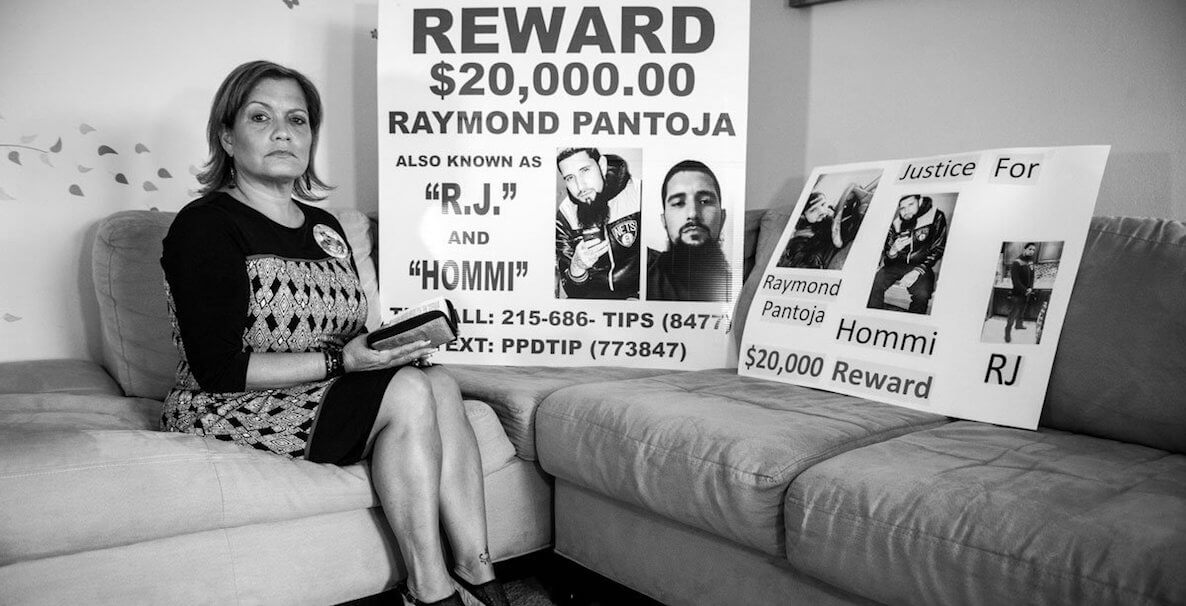In arguably the most heartbreaking episode of Philly Under Fire, we’re introduced to the women who go from “mourning mothers” forced to identify their children at the city morgue to “women on a mission, detectives intent on solving their children’s murders,” because they don’t believe anyone else will. Among the obstacles to solving so many murderers in our city: the no-snitch code. When witnesses fear retaliation, fear for their lives, what could possibly motivate them to come forward with crucial information?
What, in other words, does it take to break the no-snitch code? The answer: the sheer heartbreak of a mother whose child was murdered by a gun.
“People expect you to move on, and they expect you to forget, or you should be over it by now,” says one mother. “And it’s never going to be over. A part of me died with RJ. I’m not the same person that I was before.”
Less than half of the murders in Philadelphia in 2020 were solved by police—a frustrating fact that contributes to the continuation of violence. There are Instagram and YouTube accounts dedicated to unsolved murders in Philadelphia. The mothers of the victims are fed the hell up and they have taken to the streets to solve the murders on their own. They’ve had no choice but to switch into detective mode.
A mothers’ life changes forever when she loses a child. Her identity changes. And so too does our city change forever, each time we lose someone to gun violence. But Philadelphia’s identity doesn’t have to remain forever entangled with gun violence.
We can change. We must.
Listen to the full episode here:
Miss an episode? You can catch them all here.
Extra reading on the issues highlighted in this episode
- New York Times piece about Black mothers’ expertise in gun violence
- Kimberly Kamara in this piece about The Philadelphia Obituary Project
- Heartbreakingly beautiful profiles of those lost to gun violence at The Philadelphia Obituary Project.
More ways to dive in and stay engaged
- Learn more about Kimberly Kamara’s book Where’s my daddy? and her organization “Never Ending E~Motions LLC” aka NEEM at her website.
- Lisa Espinosa is the founder of Ray’s Rhythm for Justice Foundation, which was created to honor her son Raymond’s memory and his passion for music. The foundation works with families of homicide victims to provide support, like community resources and direction on how to work with detectives. The foundation also hosts an annual “Angels Among the Stars” gala that provides a performing arts scholarship to an individual between the ages of 6 to 26 who’s been affected by gun violence: Those are the ages of RJ’s only daughter at the time of his death, and RJ’s age when he died.
- Williesha Bethel created the Will Be Foundation in her son William’s memory. You can find more information here.
How you can take action
Contact city officials and tell them to invest in data-backed solutions that work to curb violence. Here are the best people to reach out to, with links to contact information.
- Mayor Jim Kenney: (215) 686-2181
- First Deputy Managing Director Vanessa Garrett Harley
- Councilmember Kenyatta Johnson
- Councilmember Cindy Bass
- District Attorney Larry Krasner
- Police Commissioner Danielle Outlaw
- Office of Violence Prevention
Now a little thank you …
Nadira Goffe is our associate producer. Thanks are not enough to express our gratitude to the mothers of victims who have shared their stories with us. Thank you thank you to Lisa Harmon who shared so much of herself and her son Alan’s story with us. I so much enjoyed sitting outside with you on a freezing fall day. Thank you to Sharon Smith and to Ikey Raw. Thanks to Chris Palmer for your truly excellent reporting on the homicide rate in The Philadelphia Inquirer. And finally, thanks to Spring Point Partners for funding this project.
Header photo: Lisa Espinosa, mother of Raymond Pantoja, runs Ray's Rhythm for Justice Foundation in her son's honor and is a fellow for Everytown for Gun Safety

